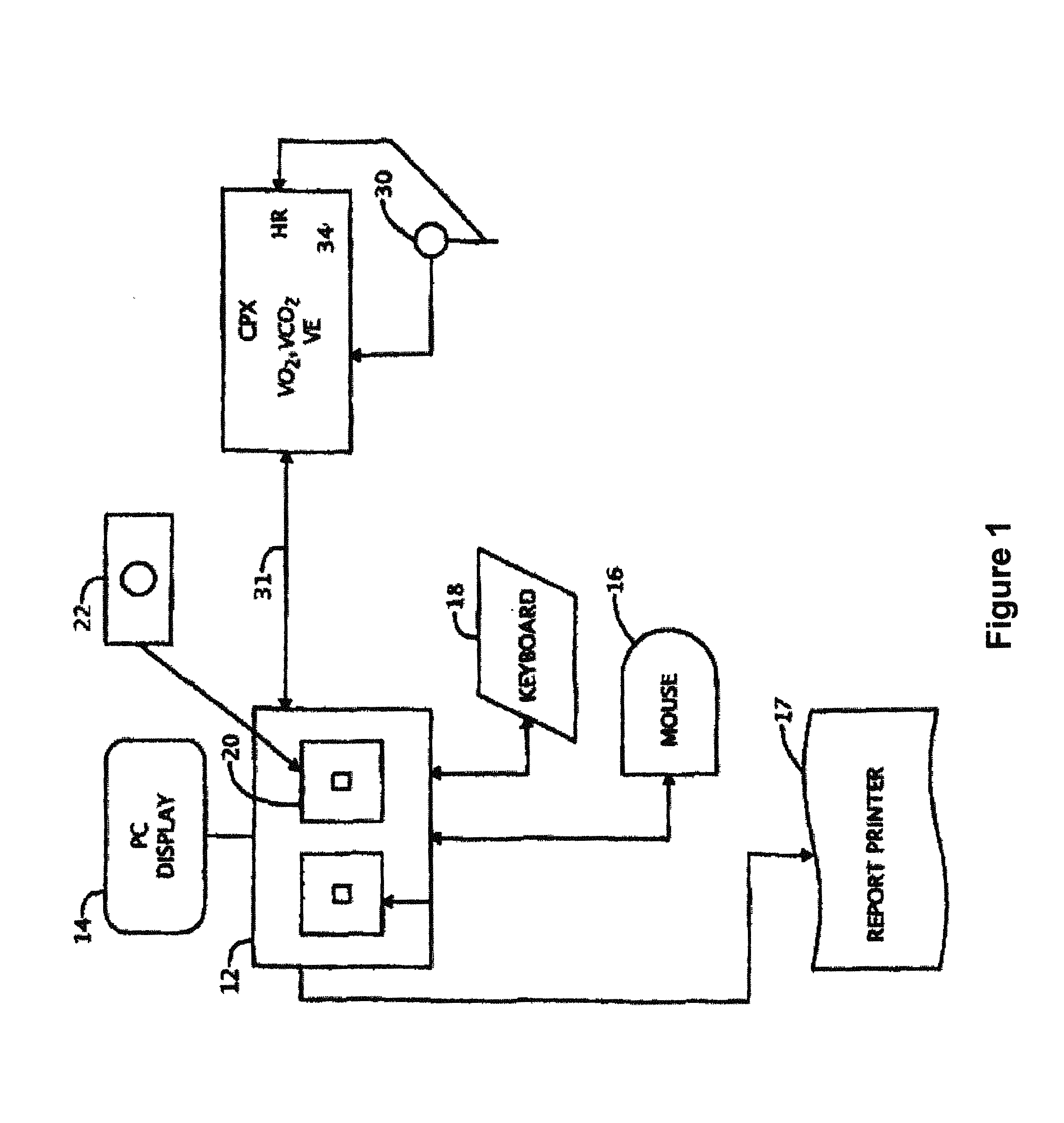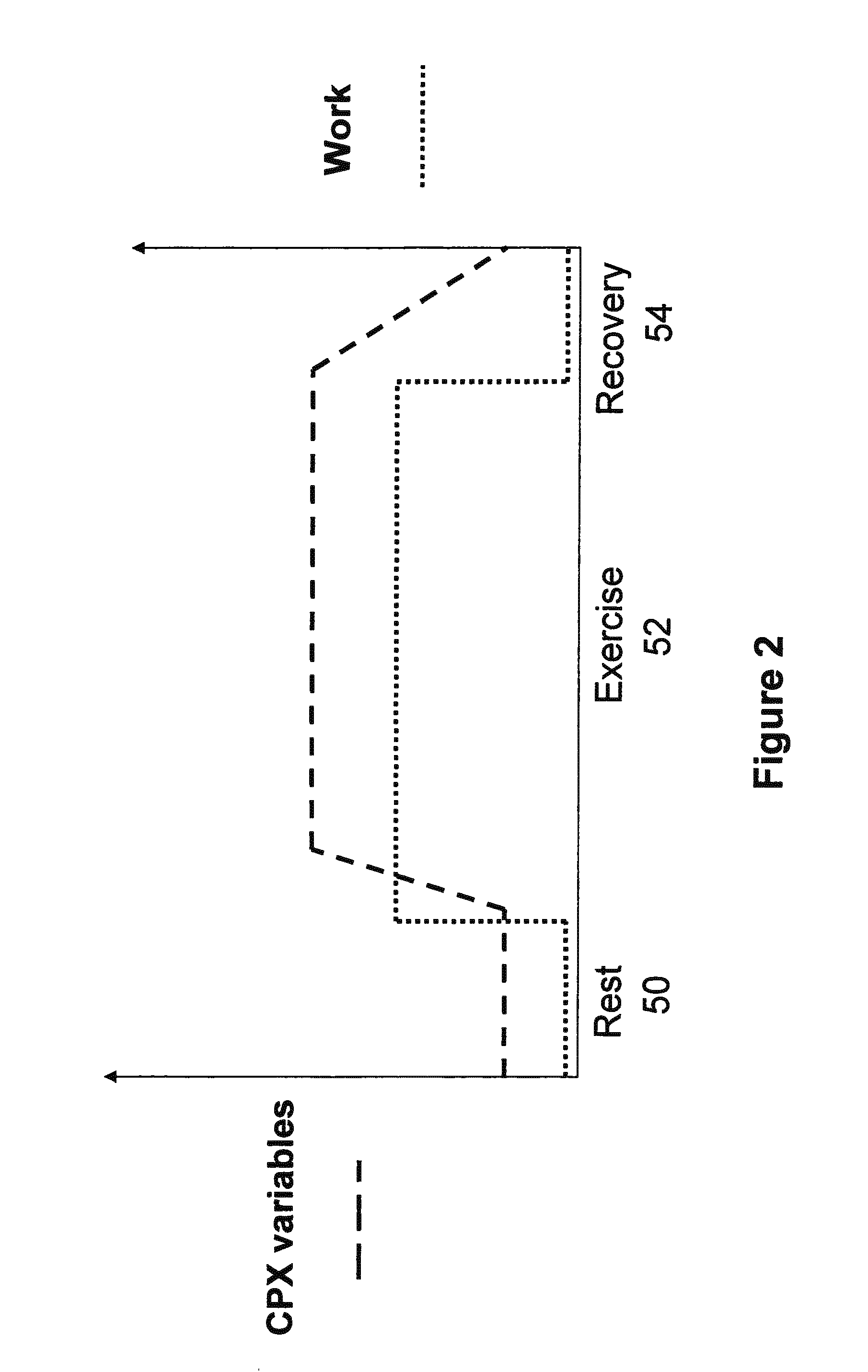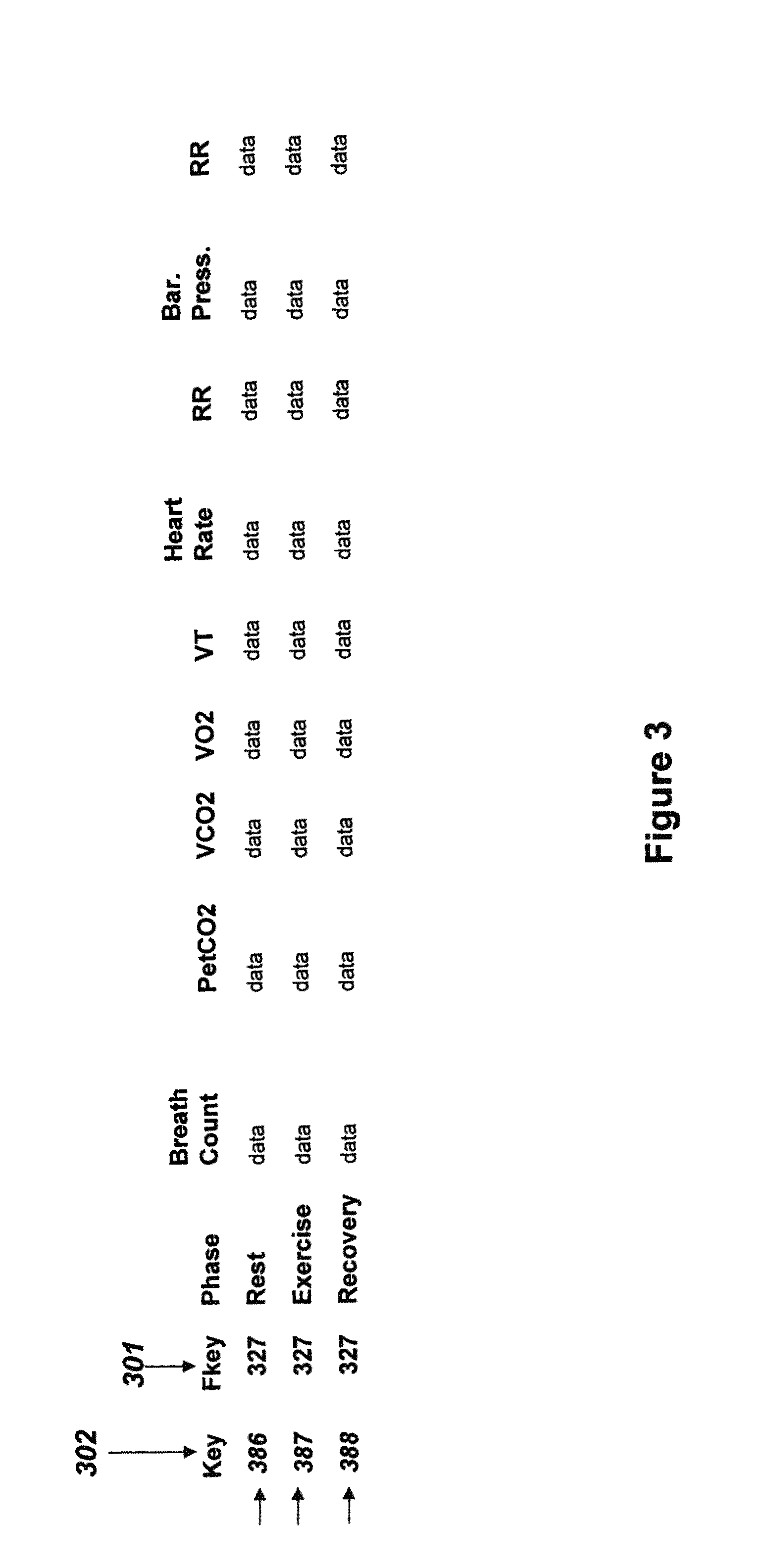Pattern recognition system for classifying the functional status of patients with pulmonary hypertension, including pulmonary arterial and pulmonary vascular hypertension
a pulmonary hypertension and functional status technology, applied in the field of pulmonary arterial and pulmonary vascular hypertension, can solve the problems of many limitations, diagnosis cannot be made on symptoms alone, and the 6-minute walk test, while simple and convenient, can be delayed, and achieve the effect of convenient interpretation
- Summary
- Abstract
- Description
- Claims
- Application Information
AI Technical Summary
Benefits of technology
Problems solved by technology
Method used
Image
Examples
Embodiment Construction
[0036]The following detailed description, including the use of patient data, is intended to be exemplary of a preferred method of utilizing the concepts of the present invention and is not intended to be exhaustive or limiting in any manner with respect to similar methods and additional or other steps which might occur to those skilled in the art. The following description further utilizes illustrative examples, which are believed sufficient to convey an adequate understanding of the broader concepts to those skilled in the art, and exhaustive examples are believed unnecessary.
[0037]It is becoming increasingly clear in the literature that the change in ETCO2 during submaximal exercise is a valuable prognostic indicator.2
[0038]“While both VE / VCO2 and (ETCO2) were significant univariate prognostic markers, the latter CPX variable appears to provide superior prognostic information during low-intensity exercise”.
[0039]Another study3 concluded that “Resting ETCO2 appears to add prognost...
PUM
 Login to View More
Login to View More Abstract
Description
Claims
Application Information
 Login to View More
Login to View More - R&D
- Intellectual Property
- Life Sciences
- Materials
- Tech Scout
- Unparalleled Data Quality
- Higher Quality Content
- 60% Fewer Hallucinations
Browse by: Latest US Patents, China's latest patents, Technical Efficacy Thesaurus, Application Domain, Technology Topic, Popular Technical Reports.
© 2025 PatSnap. All rights reserved.Legal|Privacy policy|Modern Slavery Act Transparency Statement|Sitemap|About US| Contact US: help@patsnap.com



